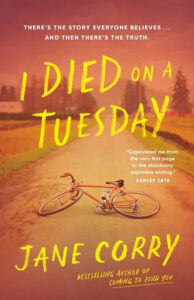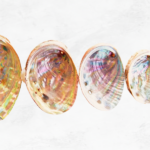Outside, it’s a rainy May Day.
Inside (literally), I’m in the world-renowned Wormwood Scrubs prison in London, looking at a scrap of paper bearing one line.
The handwriting is shaky and the spelling dubious.
Yet the words scream out at me.
‘I didn’t meen to do bad.’
I put it to one side with a yellow sticker note on it in my ‘possible commended’ pile and then I turn to an 80,000 word neatly-typed manuscript. It’s a novel based on the author’s life before he was given a life sentence.
This, too, is moving but in a different way. The foreword expresses grief for his family because, as the author says, he has put them through pain by having broken the law. There is no mention of the victim’s family.
This bothers me yet the novel is well-constructed. So that goes into my ‘possible commended’ pile too, besides others headed ‘possible gold/silver/bronze’.
You may well wonder why I’m doing this. My own story goes back 15 years when, as a newly-single mother, and a trained journalist and published novelist, I took a job as a writer in residence of a high security prison.
My role was to help men write, partly in order to express their emotions and partly to communicate with family. The governor, who was a great supporter of the arts, believed along with many others, that writing can help us face things that we have done wrong and hopefully enable us to become better people.
One of the first things I was told, when entering the strange new world of locked doors and stern faces, was to enter my men’s work for the Koestler Awards.
‘What are they?’ I asked.
I was told that it was a competition organised by the Koestler Arts for men and women in prison. I duly entered some of my men’s poems, short stories and life stories.
When some of them won awards, something extraordinary happened. According to the guards, my students’ behaviour on the wing, improved.
It was, it seemed, a result of improved self-confidence and also an acknowledgment of the pain they had caused to others, including their victims’ families.
One prisoner came up to me directly and said that writing had stopped him headbutting his cell mate because he could ‘let it all out differently’.
I wasn’t sure whether to be scared or relieved about that. But as us writers know, there’s nothing like expressing our emotions through the written word.
If this can help people make better decisions and a lawful life, then surely there is something to be said for it.
I worked at the prison for two days a week over three years. It was exhilarating, terrifying and draining all at the same time.I worked at the prison for two days a week over three years. It was exhilarating, terrifying and draining all at the same time. I was invited to stay on for longer but I knew that if I did, I might never get out.
However, as I was to discover, you can take the girl out of the prison but you can’t take the prison out of the girl.
Despite marrying again and having unexpected success as a novelist with Penguin, I kept thinking about the prison. So I volunteered to be one of the Koestler Arts judges.
That was 10 years ago. I’ve been doing it ever since and feel honoured to do so. Every May, I make a four journey to Wormwood Scrubs prison.
There I sit down in a room and read through around 400 to 500 entries. I make notes on each one and put them on piles with sticker notes. Later I will whittle them down to fit the number of certificates that I’m allowed to give.
I also give written feedback. This isn’t mandatory but I know from my work as a writer in a prison, that comments are really important to the prisoners. They might be general (‘short paragraphs can be more effective than long ones’) or more detailed such as ‘I like the way you describe your hero but how about making him limp/shuffle/dance/skip’ as an alternative to ‘walk’.’
It’s a huge responsibility. I know that many of these men will have spent hours labouring over their submissions. They will have come from all kinds of different backgrounds. Some have clearly been more educated than others. Yet the meaning behind them can be equally powerful.
This year, I sat in the room with a co-judge who had been a prisoner herself. It wouldn’t be right to go into her background but she did tell me that the Koestler awards had helped her when she’d been serving her sentence, and that she was now living a lawful life.
When I finished at the end of that day, I feel drained and also worried.
Had I given the awards to the right people? If only I had enough certificates for everyone. I’ve judged short story competitions before for book clubs and magazines. There’s always a weight of responsibility but somehow it feels bigger in prison. I know from my own experience of working in one, that the men look forward with apprehension to receiving the results. They will be disappointed if they don’t get a bronze or silver or gold or a highly commended – especially if someone else in their wing does.
Will they understand that not everyone can win an award?
Later in the year – the end of September –the award-winning entries along with other categories such as painting, textile design, are exhibited at the Southbank Centre in London.
There is usually an opening ceremony with a government dignitary or two. Each year, the exhibition is curated by somebody different. It might be a former prisoner as it was this year.
I’ve just come back from seeing the recent exhibition. As always, it’s left me with so much food for thought. Perhaps one of the most moving pieces of all, was part of a written foreword by the curator John Costi, which hung on the wall. It described how important the awards were to him when he had been doing time. Below is an extract:
‘Getting feedback sent to my cell is still one of the most exciting moments of my life.
I felt that I felt like maybe I was an artist after all. Maybe I was born to put into the world, rather than take.’
I believe that writing should be available to everyone; whether it’s the spoken word (as with some of my former students) or written down. It doesn’t matter if it’s grammatical or of degree standard. It’s our way of expressing ourselves. And it can help us understand where to go and how to move forward in Iife.
If you’d like to know more about the Koestler Awards, you can check them out on www.koestlerarts.org.uk
***


















